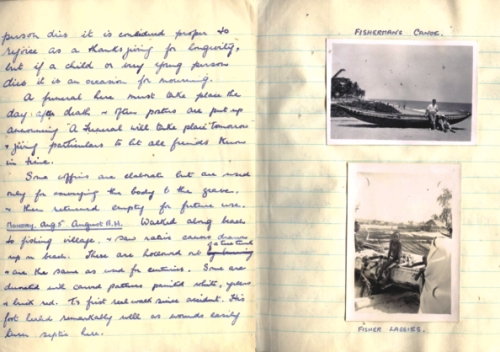|
Life Style
Your Journal of Gratitude
Laura Morice
Your son flunked his math test. (Just great, you think.) Your car needs new brakes. (Lucky me.) Your company just announced layoffs -- again. (Gee, thanks.) Most of us are so busy trying to deal with the problems bestowed upon us each day that we have little time to appreciate the good things that also come our way.
According to new research, it's crucial to stop and count your blessings, even when you've got a million other things on your mind. In a recent study reported in the Journal of Personality and Social Psychology, people who began to consciously remind themselves every day of the things they were grateful for showed a significant improvement in mental health. They also slept better and exercised more. "In just two to three weeks, they reported being happier -- and people close to them could see the difference, too," says Michael McCullough, PhD, associate professor of psychology and religious studies at the University of Miami and co-author of the study.
None of this comes as a surprise to writer Sarah Ban Breathnach, author of the best-selling book Simple Abundance. Breathnach says she used to be a closet whiner. "I never complained to anybody else, but I was constantly whining to myself," she says. She grew so tired of listening to her inner drone that one day she sat down and decided she would not leave the table until she came up with 100 reasons why her life was perfect just the way it was.
Six hours and 150 overlooked blessings later, Breathnach felt more than a little humbled. She also felt pretty good. In fact, Breathnach says the buzz she felt was almost euphoric. That night she slept better than she had in a long time. "I wanted to experience that feeling again," she says. "The next day I thought, I wonder if I can find five more reasons in the day to be grateful." And so began her gratitude journal.

Taking the time to write down your blessings is an important step toward living a life of gratitude, says Breathnach. It firms up your grateful thoughts and encourages you to act on them. It can also slowly change the lens through which you view your day. Instead of looking for every harm inflicted on you, you'll find yourself becoming keenly aware of small things that bring you pleasure. "You'll know that you need five things to write down by the end of the day, which will make you less likely to let the things you're grateful for go unnoticed," says Breathnach. While the effects of writing down your blessings can be almost immediate, Breathnach suggests that you go back and read your gratitude journal after a few months, taking time to reflect on what brought you pleasure. "Most of us don't know what makes us happy," she says. "If we don't know what little pleasures we like, how can we bring more of them into our life?"
Your gratitude journal should be fun, not a chore. So keep it simple, and don't try to make it too deep or philosophical. Here are some tips for getting started:
Take stock of your senses. Jot down a taste you enjoyed, something you saw that you never noticed before, or the pleasant feeling of something such as clean sheets or your favourite cashmere sweater. "You'll have five things before you know it," says Breathnach.
Think small. Of course we're thankful for the big things -- our health, our relationships, our children -- but it's the small things, like a stranger holding the door for you or a hot cup of tea on a cold winter night, that are equally pleasing yet often overlooked.
Turn your troubles on their head. If your finances are causing you anxiety, find five things that made you feel bountiful that day. Maybe you found 50 taka in a jacket pocket, or the plumber's bill was less than you thought it would be. "Your mind cannot hold two opposing thoughts at the same time," says Breathnach. "Focus on the positive aspects of your money situation instead of your bills and you'll start feeling more abundant."
After a few weeks -- maybe even a few days -- take stock of how you're feeling. Don't be surprised if you feel happier, better rested, and more inclined to reach out to others (perhaps making the pages of their gratitude journals that evening). It seems hard to believe, but all these things can come out of one little word: gratefulness. Breathnach says, "It's actually two little words: Thank you."
Source: MSN.com
Copyright
(R) thedailystar.net 2005 |
